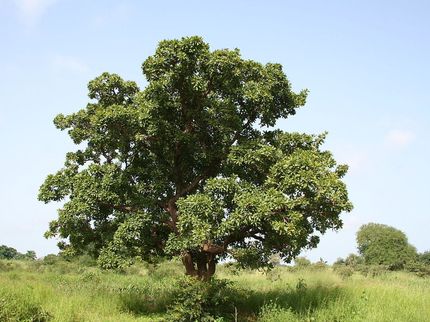Sustainability in the food system: not simply less, but different and better
Proponents of a no-growth economy have long argued that economic growth as such is harmful to the environment. Now researchers have shown that curbing growth alone would not make our food system sustainable - but changing our diet and putting a price tag on agricultural emissions would. For the first time, a group led by the Potsdam Institute has used a computer simulation to examine the impact that so-called "degrowth" approaches and efficiency improvements could have on greenhouse gas emissions from the food sector.

Bild von Markus Spiske auf Pixabay
Their finding: a combination of dietary change, emissions pricing and international income transfers can make food production and consumption emissions-neutral by the end of this century, while providing healthier diets for a growing global population.
"If we allowed our system of food production and consumption to shrink instead of grow, the net result would not be that much benefit to the climate. Instead, we need to change this system itself from the ground up," says Benjamin Bodirsky, a researcher in Potsdam and at the World Vegetable Center in Taiwan, one of the study's authors. "On the one hand, this means that people consume only what they need to meet their nutritional requirements; that they throw away less food and eat a more balanced diet, with many more vegetables and fewer animal products. On the other hand, such a qualitative change means more efficiency, producing food in a more environmentally friendly way, for example through more targeted fertilization and higher-yielding crops. In addition, putting a price on carbon could encourage farmers to produce with lower emissions, simply because lower emissions mean lower costs. Taken together, that could dramatically reduce greenhouse gas emissions."
From field to plate, the way we farm our land and produce food accounts for up to one-third of global greenhouse gas emissions along the entire supply chains. "So we looked at what this system would look like in a hypothetical world without economic growth: Based on various "degrowth" approaches discussed in academia, we created a series of scenarios, which we then fed into a computer simulation for food and land systems, examining their impacts," explains David Chen, a researcher at the Potsdam Institute for Climate Impact Research and author of the study. "We took a step back from the heated normative debates about post-growth or 'degrowth.' Our result shows that the current food system is basically never truly sustainable, no matter what the growth rate."
The simulations show that simply curbing growth in rich countries would not yield significant benefits to food system sustainability. And income transfers from rich to poorer countries could actually increase greenhouse gas emissions. The reason is that consumption of environmentally harmful foods increases most significantly when countries move from low to middle income.
Sustainable food is better for health and the environment
However, when the researchers fed consumption changes plus efficiency gains from emissions pricing into the computer simulation, the result was healthier diets for all and lower greenhouse gas emissions, and subsequently less production effort in agriculture. "For the food system, we can say: in a way, a bit of 'degrowth' would be the outcome of the sustainable transformation, not the starting point," says Hermann Lotze-Campen, co-author from the Potsdam Institute. "So basically, it's not simply about less growth, but about a different kind of growth."
Importantly, a sustainable transformation of the food system that takes into account all environmental costs would result in a slight increase in food prices - which would be felt most by the poor, the researchers say. That's why it's critical that any transformation be flanked by a well-designed mix of smart tax systems, social compensation for emissions pricing and also international offsets. This is because it requires investment to make agriculture more climate-friendly, for example through better management of nitrogen fertilization in cropland. The bottom line, however, is that these costs are likely to be offset by the value and benefits of intact ecosystems.
Note: This article has been translated using a computer system without human intervention. LUMITOS offers these automatic translations to present a wider range of current news. Since this article has been translated with automatic translation, it is possible that it contains errors in vocabulary, syntax or grammar. The original article in German can be found here.
Original publication
Artikel: Benjamin Leon Bodirsky, David Meng-Chuen Chen, Isabelle Weindl, Björn Soergel, Felicitas Beier, Edna J. Molina Bacca, Franziska Gaupp, Alexander Popp, Hermann Lotze-Campen (2022): Integration von Degrowth- und Effizienzperspektiven, um ein emissionsneutrales Lebensmittelsystem zu ermöglichen. Nature Food.




























































